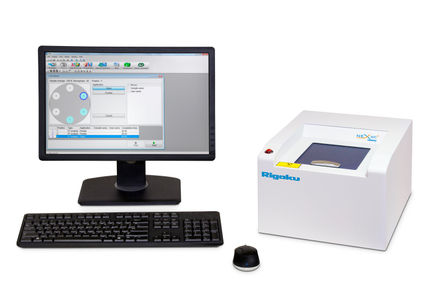To use all functions of this page, please activate cookies in your browser.
my.chemeurope.com
With an accout for my.chemeurope.com you can always see everything at a glance – and you can configure your own website and individual newsletter.
- My watch list
- My saved searches
- My saved topics
- My newsletter
Temperature coefficientThe temperature coefficient is the relative change of a physical property when the temperature is changed by 1 K. Product highlightIn the following formula, let R be the physical property to be measured, let T be the temperature of at which the property is measured. Further, T0 is the reference temperature, and ΔT is the difference between T and T0. Finally, α is the temperature coefficient. Given these definitions, the the physical property is: Here α has the dimensions of an inverse temperature (1/K or K−1). This equation is linear with respect to temperature. For quantities that vary polynomially or logarithmically with temperature, it may be possible to calculate a temperature coefficient that is a useful approximation for a certain range of temperatures. For quantities that vary exponentially with temperature, such as the rate of a chemical reaction, any temperature coefficient would be valid only over a very small temperature range. Temperature coefficient of electrical resistorThe temperature dependence of electrical resistance and thus of electronic devices (wires, resistors) has to be taken into account when constructing devices and circuits. On the other hand, this property is used in devices such as thermistors. The temperature dependence of conductors is to a great degree linear, that of a semiconductor is however exponential: R(T) = a * exp(b/T).
t0 is the resistance at 0degree centigrate Coefficient of thermal expansion
The physical dimensions of matter can be affected by temperature. The Coefficient of thermal expansion for a given sample of matter can be used to approximate its change in volume given a change in temperature. A similar coefficient, the linear thermal expansion coefficient, is also often used to measure the change of length of an object in one-dimension. The coefficient of thermal expansion is often used to develop thermometers. Here lengths of materials can express temperature. The coefficient is also used for several types of thermostats. Temperature coefficient of reactivityIn a nuclear reactor, the temperature coefficient of reactivity is a measure of the change in reactivity, or the change in power, brought about by a change in temperature of the reactor components or the reactor coolant. In water-cooled nuclear reactors, the predominant reactivity changes are brought about by changes in the temperature of the coolant water. In this case, the temperature coefficient is negative, which means that an increase in coolant temperature causes a decrease in reactivity, and vice-versa. |
||
| This article is licensed under the GNU Free Documentation License. It uses material from the Wikipedia article "Temperature_coefficient". A list of authors is available in Wikipedia. |








